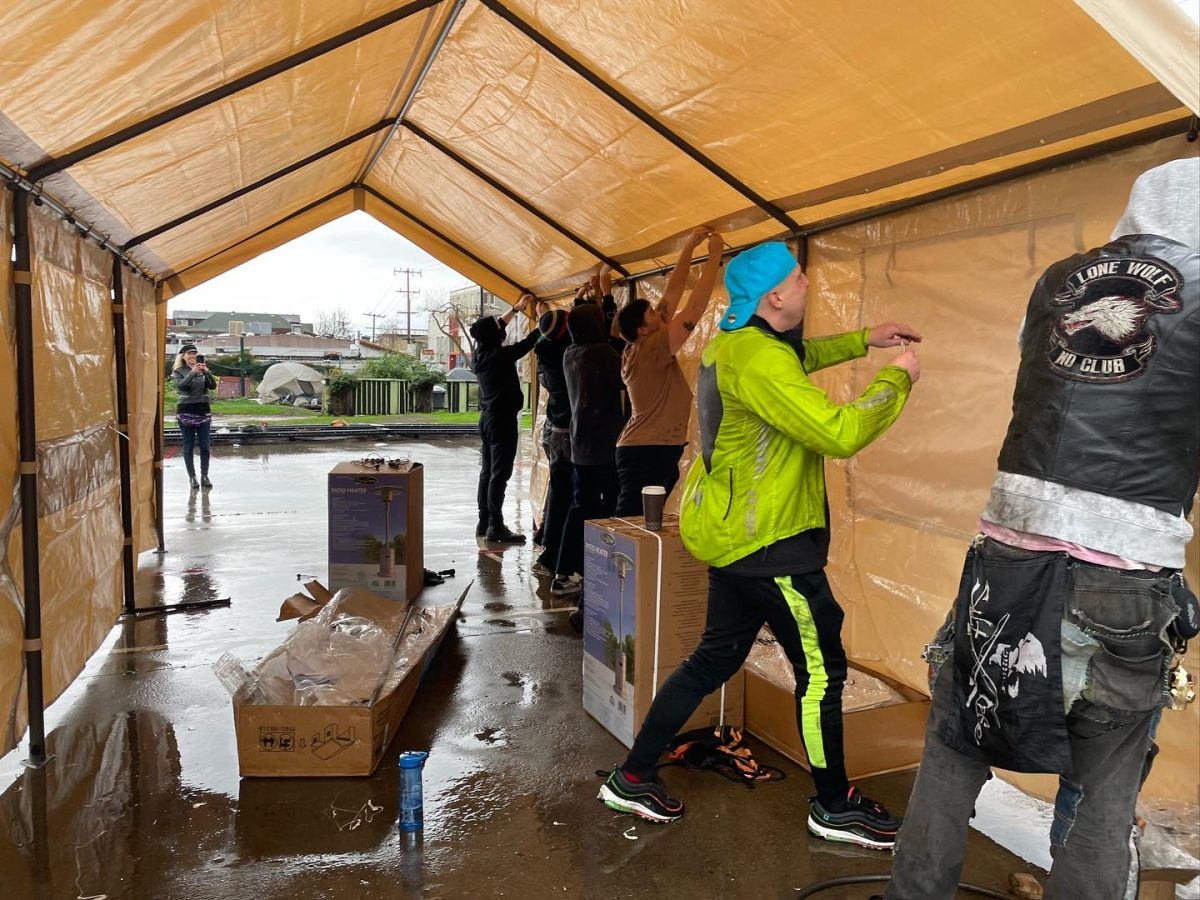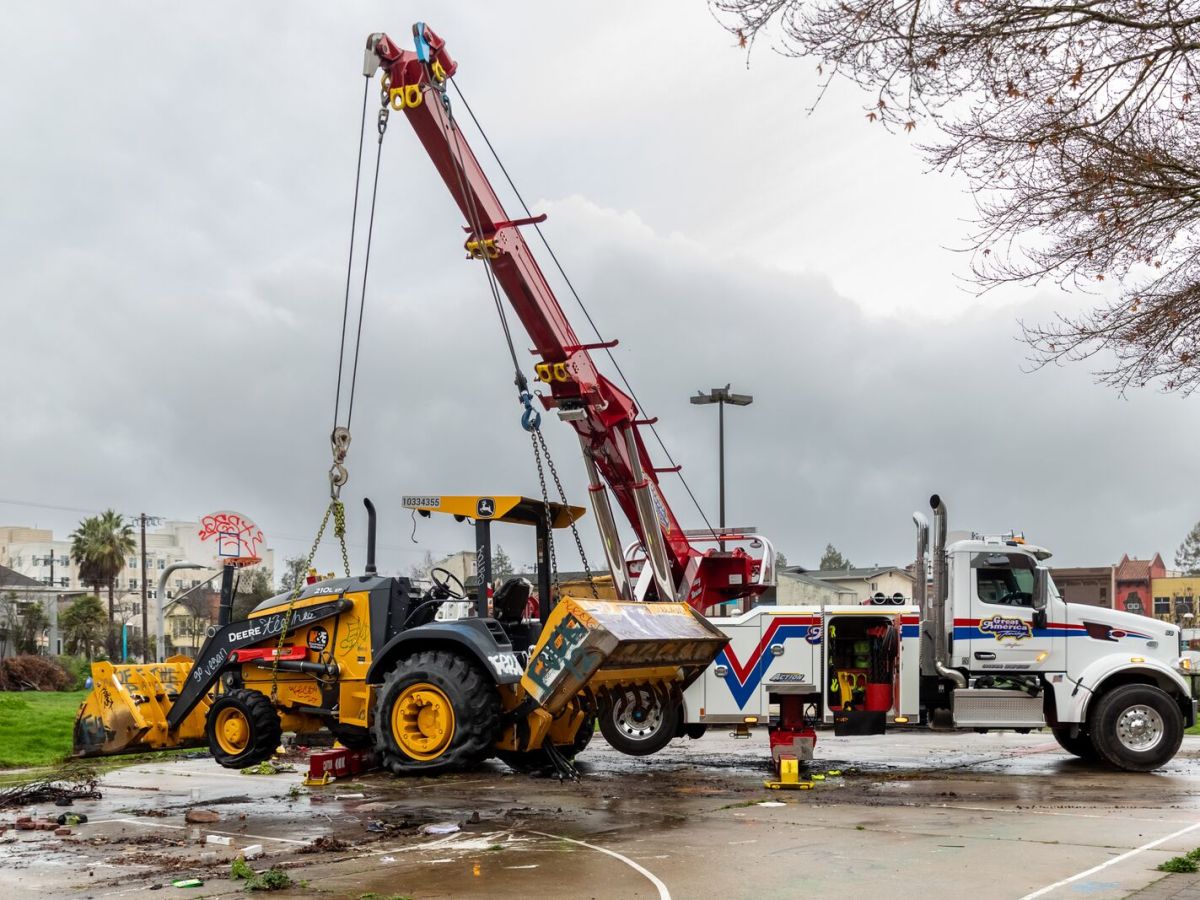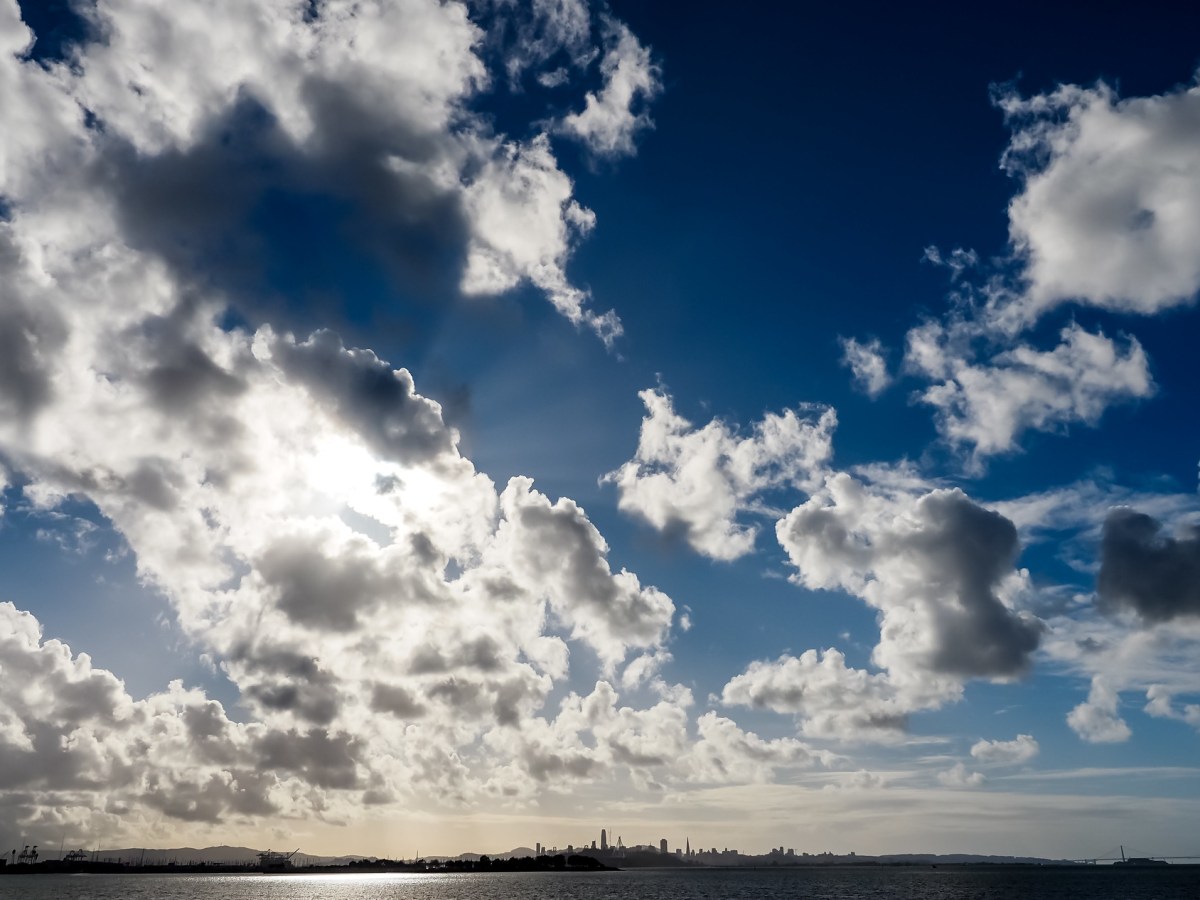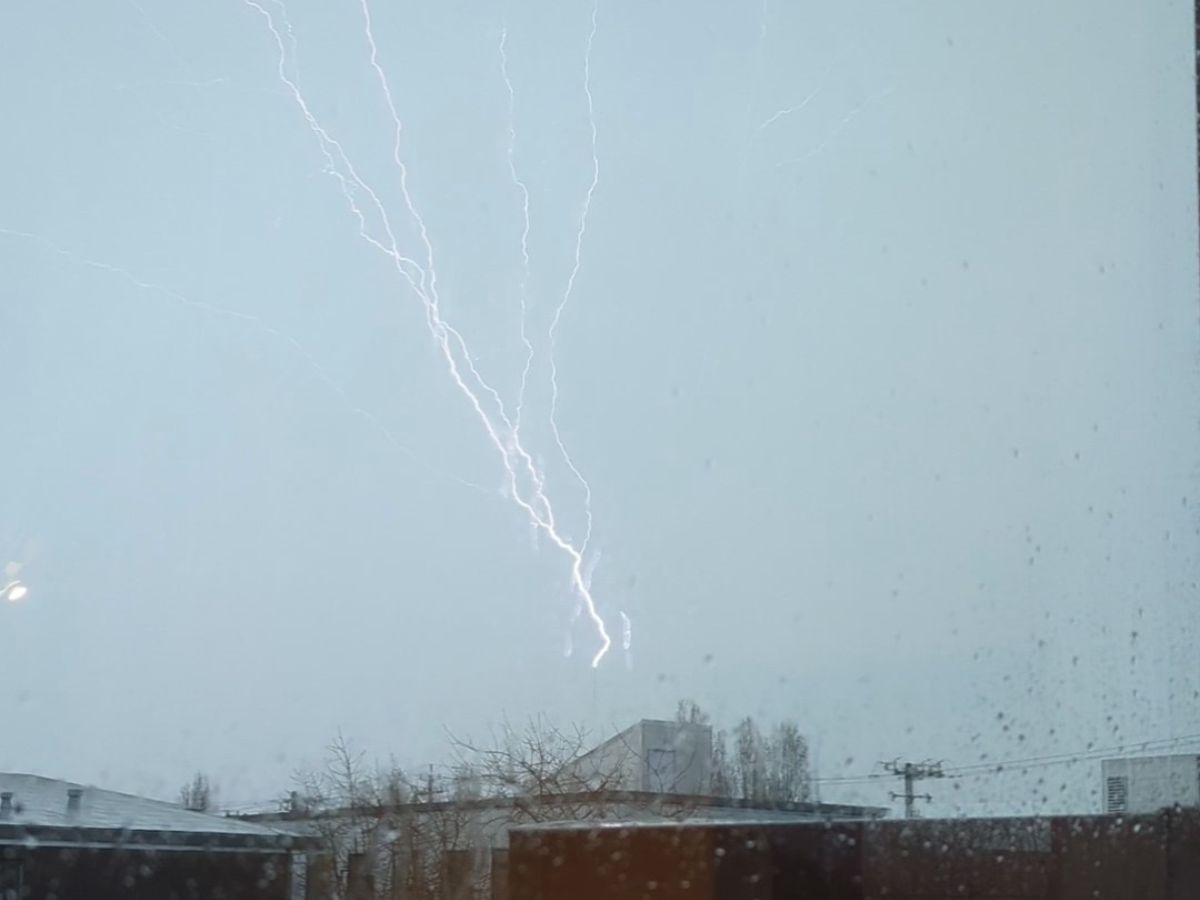
People’s Park activists this week opened a temporary emergency warming center to provide heated shelter, food and water for the unhoused during fierce winter storms that have brought torrents of rain, high winds, and even hail to Berkeley.
The warming center consists of two large canvas tents held down by 400-pound barrels of water, patio heaters, and several folding chairs and tables. It currently sits on a basketball court where, until Monday morning, construction equipment had been parked since the summer.
UC Berkeley sociology student Enrique Marisol said they had protested outside Old City Hall on Sunday, calling on the city of Berkeley to open a 24-hour emergency warming shelter, and sending emails to politicians and city workers — to no avail. By Monday, they had decided to take matters into their own hands, rapidly texting friends and other park activists and organizing trips to buy supplies.
“It came together really fast,” Marisol said. Word spread, and by Tuesday afternoon the center opened its beige cloth doors. That evening, organizers cooked a meal for 20. Five people stayed the night there, including one who had previously been sleeping under a bridge by Strawberry Creek at UC Berkeley.
The warming center, funded by donations from People’s Park activists, cost roughly $1,500 and can fit up to 40 people “if crammed,” they said. Tents, heaters and propane tanks make up the bulk of the operating costs, and volunteers have donated clothes, ponchos, blankets, sleeping bags and hygiene supplies. People’s Park community members have been taking turns keeping watch. Local grassroots organizations, including Consider the Homeless and Food Not Bombs, have also chipped in.
“We need an emergency plan that includes protection of life and unhoused residents,” said park activist Naya Rose, who urged UC Berkeley to reopen park bathrooms and turn back on the water and electricity. “Let us provide what the city is failing to provide.”
Unhoused people were exposed to harsh conditions, activists say
The Berkeley Emergency Storm Shelter at the old City Hall has been at its maximum capacity of 19 residents since December, said Robbi Montoya, executive director of the Dorothy Day House, which operates the shelter.
When temperatures drop below 45 degrees or when there is a more than 50% chance of precipitation, the city recommends that those in need of shelter head to the North Berkeley Senior Center emergency warming center. The warming center can accommodate up to 88 people and provides clean clothes and socks (when available), PPE, snacks and weekend meals, said city spokesperson Matthai Chakko.
Unlike the winter shelter, the emergency warming center is activated at night, opening doors at 6:30 p.m. and closing early in the morning before libraries or indoor public spaces are open. These timing gaps have meant some unhoused residents, including seniors and disabled people, were left waiting outside in the dark, exposed to the elements.
“At 6 o’clock on the worst of the storms last Wednesday, there were 22 people huddled, pushed up against that building, soaking wet, waiting for that building to open,” Rose said.
On Saturday, the city extended the warming center’s closing time from 6:30 a.m. to 8 a.m. in response to community concerns, said Peter Radu, the city’s Homeless Services Coordinator. Radu said that throughout the winter storms, his outreach team has visited unhoused residents across the city, particularly those living in the encampment West of San Pablo Avenue near Codornices Creek, advising them to evacuate flood zones and informing them of shelter options.
The Berkeley Community Resource Center at 1931 Center Street, a daytime drop-in center also run by the Dorothy Day House, opens at 8 a.m. daily and is a roughly 10-minute walk from the North Berkeley Senior Center. “It’s not a shelter per se, but there’s a TV, and there’s food,” Montoya said. “We stay open until 6 p.m. in time for the warming center to open, and people can go over there and sleep.”
Future of People’s Park remains in limbo
On Monday, the University of California removed vandalized bulldozers from People’s Park amid a lawsuit that could upend the school’s plan to build 1,100 beds for students in two buildings, one 12 stories high and one six stories, along with 125 beds of supportive housing for the unhoused.
A court cleared the way for UC to begin construction on the site last July, but a week later they were met by activists, who tore down a hastily built fence, forcing construction crews to halt their activity.
A judge later granted Make UC a Good Neighbor and the People’s Park Historic Advocacy Group a stay order to allow the court to review an appeal petition on their original California Environmental Quality Act lawsuit. The case was being heard in court Thursday.
UC Berkeley has maintained that the area remains a construction site.
“(W)e continue to discourage people from trespassing and from engaging in activities that pose a potential danger to themselves, as well as the students and community members who live in the neighborhood,” UC Berkeley spokesperson Dan Mogulof wrote in an email.
Organizers plan to continue running the shelter through at least next week, when rain is forecast, however, conditions may begin to dry up late next Thursday, according to the National Weather Service.
“We’re doing the best we can, but there’s still water on the floor,” Marisol said. “The tent is just walls and a roof.”
Clarification: This story initially stated that the warming center was funded by the activist group Defend People’s Park. It is funded by People’s Park activists.



